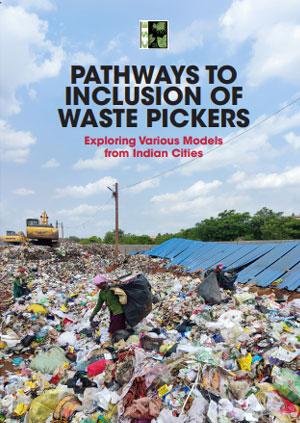Pathways to Inclusion of Waste Pickers
August 05, 2025
This report offers an in-depth exploration of diverse models for the inclusion of informal waste pickers in urban solid waste management systems across Indian cities, capturing a broad spectrum ranging from cooperative-led systems to SHG-operated units and formalised roles within the municipal system.
Key insights reveal that legal mandates under the SWM Rules 2016 have not translated into actionable city-level policies. Identification of waste pickers remains inconsistent, and the most critical aspect for their livelihood—access to waste—continues to be denied.
The study highlights that effective inclusion goes beyond formalisation, emphasising the need to preserve existing livelihoods while providing social security, dignity, and agency. It reveals that successful integration is rooted in an enabling environment that recognises waste pickers’ rights, ensures access to waste, and enables income security and social protection.
Drawing on field studies and stakeholder consultations, the report underscores the importance of structured enumeration, recognition, inventorisation, and collective organisation as foundational steps. It presents practical steps and policy insights for urban local bodies to create an equitable, cost-effective, and sustainable waste ecosystem— turning informal waste work into a cornerstone of a just transition aligned with circular economy

Share this article